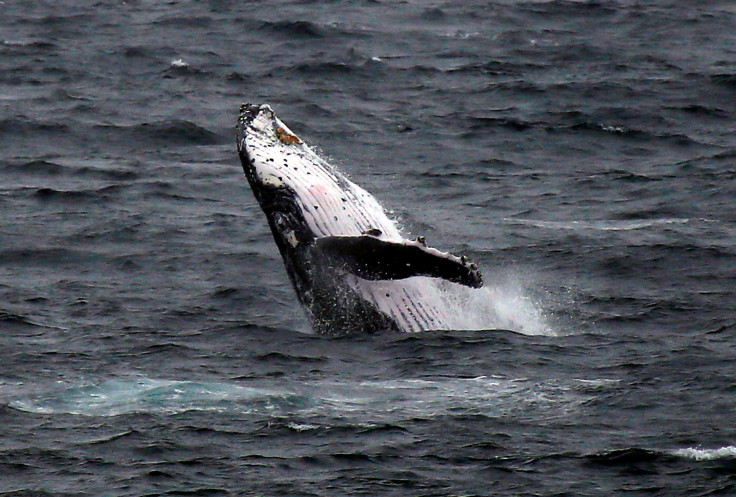South Atlantic Whale Sanctuary Creation Bid Falls Through After Whaling Nations Scuttle Proposal

A push to create a protected area for whales in the South Atlantic fell through Tuesday after international delegates at a meeting of the International Whaling Commission in Portoroz, Slovenia, rejected the bid. The plan was first put forward in 2001, and has been repeatedly rejected in previous IWC meetings.
The proposal by the governments of Argentina, Brazil, Gabon, South Africa and Uruguay, received only 38 votes in its favor out of 64, falling short of the three-quarters majority needed to come into effect.
“It’s a disappointment that the proposal for a South Atlantic whale sanctuary has again been defeated by those nations with a vested interest in killing whales for profit,” Kitty Block, vice president of the Humane Society International, said in an emailed statement to International Business Times. “With the clear need to create a safe haven sanctuary for whales under threat not merely from the potential resumption of whaling, but from death from entanglement in fishing gear, marine pollution, and injury from ship strikes, whose populations are still struggling to recover following decades of merciless commercial whaling in the twentieth century, it is a tragedy that Japan and its allies yet again blocked this proposal.”
Among the 24 countries that voted against the proposal — which, if passed, would have banned commercial hunting of whales in an eight-million-square-mile sanctuary — were Iceland, Japan and Norway. Two others abstained.
While opponents of the proposal, including Japan, argue that creation of such a sanctuary is not based on scientific evidence and is incompatible with international law, supporters say that doing so is urgently needed to protect the marine mammals, as over 70 percent of the estimated three million whales killed between 1990 and 1999 were in the Southern Hemisphere.
“There was no legitimate reason to block passage of the proposal except for spite and opposition to the conservation agenda of nations in the region,” Block said.
The biggest issue at the IWC conference, which began Monday, was Japan’s yearly whale hunt.
According to an estimate by the World Wide Fund for Nature, Japan has killed over 8,200 minke whales in the Antarctic since 1986, in an apparent defiance of an international moratorium on commercial whaling. In 2014, the International Court of Justice ruled that Japan's annual whale hunt was part of a commercial venture, and not intended for research, as claimed by the Japanese government.
Following the ruling, the country stopped its whaling activities for a year, only to resume it the following year. On its part, Japan has long maintained that most whale species are not endangered and eating whale is part of Japanese culture. Attempts to stop the whale hunt are perceived by many Japanese as a threat to their culture and tradition.
“This year also marks the 30th 'anniversary' since the moratorium on commercial whaling started in 1986. Japan’s position has been consistent and open throughout this time — that the moratorium on commercial whaling should and could be lifted on a stock-by-stock basis based on sound scientific advice,” the Japanese government said in its opening statement at the IWC conference Monday. “One must ask once again seriously whether the practically indefinite extension of the moratorium on commercial whaling does not amount to the alteration of the object and purpose of the ICRW [International Convention for the Regulation of Whaling].”
© Copyright IBTimes 2024. All rights reserved.












